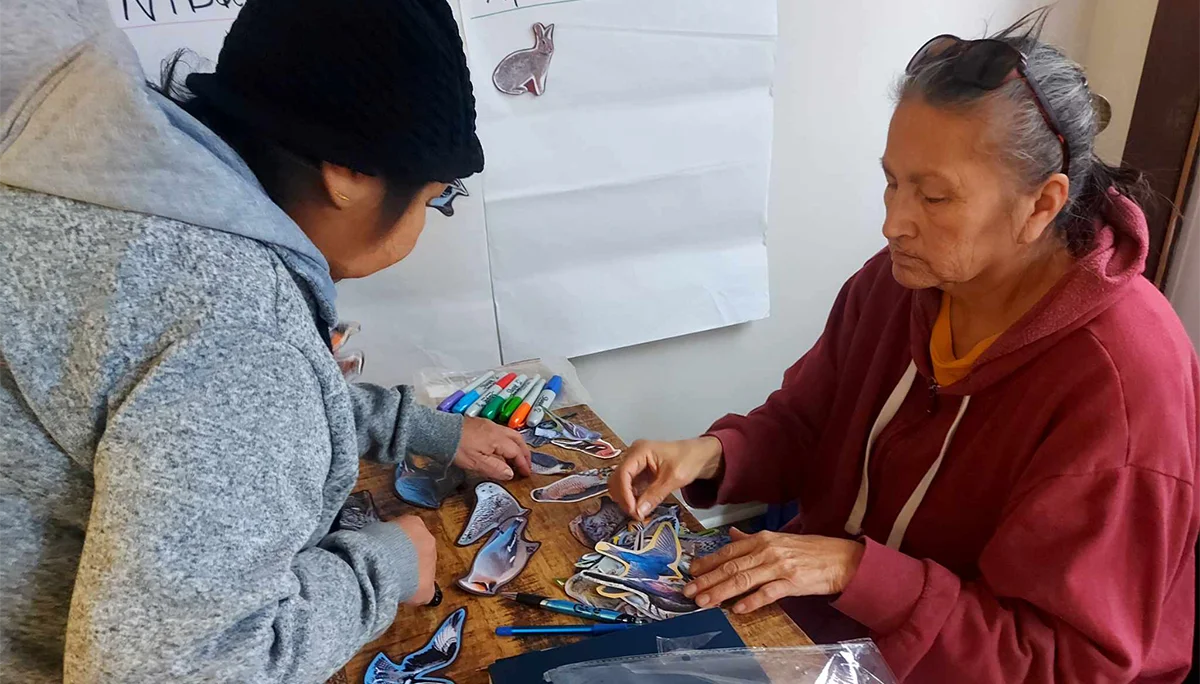Anishnabe-led Moose Research Project – Phase 3
Organization: Small Change Fund
The Small Change Fund acts as a catalyst for individuals and grassroots organizations. They work together to improve the environment, reduce poverty and promote reconciliation efforts across Canada, including working with Indigenous Peoples to support the protection of their lands, waters and communities.
Location: Quebec and Ontario
Communities benefiting directly from the project: Algonquin Anishnabeg
Country: Canada
Other Organizations Involved: The Anishnabe Moose Committee (AMC) is the lead partner in this project and the driving force behind its vision and activities. Formed in 2021, the AMC was created in response to the urgent decline of moose populations and the broader need to protect Anishnabe land, culture and food sovereignty. The AMC leads all aspects of this project, from knowledge gathering to community engagement, youth training and land-based research, through consensus and guidance from Elders.
 @ Shannon Chief
@ Shannon Chief
Background
Moose are suffering due to colonialism. The moose population in Anishnabe territory is in sharp decline due to sport hunting, industrial forestry and climate change. Moose are Anishnabe relatives; they are tied to our culture, our lands and our sovereignty. The decline of the moose is related to the broader injustices that impede flourishing and healthy lands, waters and people, including the suppression of Anishnabe traditional governance and sovereignty. The Anishnabe Moose Committee was formed in response to urgent calls from Elders to address the moose decline in our territory. We do so by conducting community-led research, connecting youth with land-based education and being a voice for the moose.
Goals
Our goals are to protect the moose populations; strengthen climate resilience and revitalize Indigenous land governance through education, research and employment.
Main activities
Our activities span three main pillars: education, research and training. Our education activities include hosting land-based camps, community-centered knowledge-sharing, school visits and producing newsletters and public reports. Our research activities include gathering Traditional Knowledge understanding of the decline of moose and collecting ecological data using methods from Western science, such as trail cameras. We also focus on training and employment activities, such as hiring a Land Studies Coordinator and a Project Administrator, training youth as land guardians and offering skills development and meaningful employment tied to cultural and land stewardship.
Expected outcomes
We expect to reach many youth and Elders, who participate in intergenerational, land-based education that reconnects them to culture and climate solutions. We expect to gain insight into baseline ecological data through Traditional Knowledge and governance, and monitoring of moose populations, using community-operated trail cameras. We will also achieve the creation of Tanikiwin, a new Anishnabe-led organization that will sustain these efforts over the long term by providing structure, training and advocacy. Meaningful employment and training for youth and local project staff will be created, building career pathways in research and Indigenous governance. These outcomes will contribute directly to environmental protection, climate resilience and the revitalization of Anishnabe culture, ensuring the long-term health of moose populations and Anishnabeg.